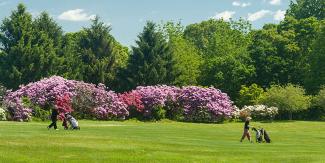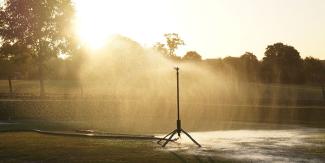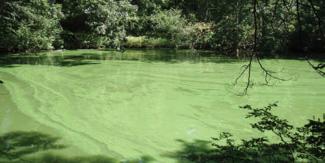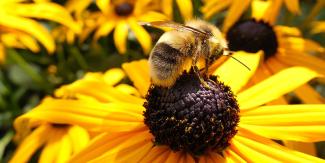Green Golf Course Certification Program
For Technical Issues
Many of the documents on this page require Adobe Reader or Acrobat. Click here to upgrade to the latest version of Adobe Reader. For best results, please download the form to your desktop/device.
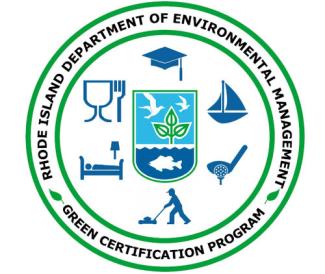
The Rhode Island Department of Environmental Management (RIDEM) Green Golf Course Certification Program has been in existence since 2011. The program is built upon the foundations of pollution prevention as it pertains to land use with a specific focus on the reduction on non-point source pollution.
The program began with a strong partnership between the RIDEM and the Rhode Island Golf Course Superintendents Association. Over the course of many years, the program expanded to include other turf management sectors such as landscapers and turf farmers which lead to a comprehensive sustainability program for all sectors of turf management. The RIDEM has gained support from multiple organizations such as Rhode Island Nursery and Landscape Association (RINLA) and the Rhode Island Turf Foundation (RITF).
The goal of this program is to give golf courses an opportunity to implement best management practices, measure environmental performance, and recognize achievements. The focus areas of the program are reductions in three key categories:
- water use for irrigation,
- fertilizer use,
- and pesticide use.
The program was assisted with the award of a pollution prevention grant in 2014. The grant program was implemented from 2014 to 2017 and during this time significant reductions in non-point sources of pollution were measured. Over the course of the 3-year grant program, RIDEM collected metrics at golf courses, turf farms, and landscapers in four key categories water use, fertilizer use, pesticide use, and greenhouse gas reductions.
From 2011-2017, golf courses, landscapers, turf farmers, and colleges and universities have
- reduced over 242,000 lbs. of fertilizer
- reduced close to 373,000,000 gallons of water
- reduced more than 540 lbs. of pesticide
- reduced nearly 1,430 metric tons of CO2 equivalent
These successes were only accomplished by the dedicated participation of the golf courses, landscapers, and turf farms that participated in the program. To see a complete list of program participants see the link under certified businesses.
The RIDEM Green Golf Course Certification Program reflects the Golf Course Superintendents Association of America best management practices program. By becoming part of the RIDEM program, golf courses can measure their environmental performance over time and use it to educate members and market their sustainable efforts. In conjunction with our RIDEM Green Events Program, the annual CVS Charity Classic golf tournament has been hosted at a RIDEM green certified golf course. This golf tournament is also a certified green event through the RIDEM Green Event programs.
Become a green certified golf course by filing out the checklist at the link below
Resources and Education
- List of DEM Green Certified Landscapers
- US Golf Course Superintendents Association Best Management Practices Manual
- The 10 Most Eco-Friendly Golf Courses in the US
- Audubon Cooperative Sanctuary for Golf Program
- New England Interstate Water Pollution Control Commission Program for Non-Point Source Pollution

